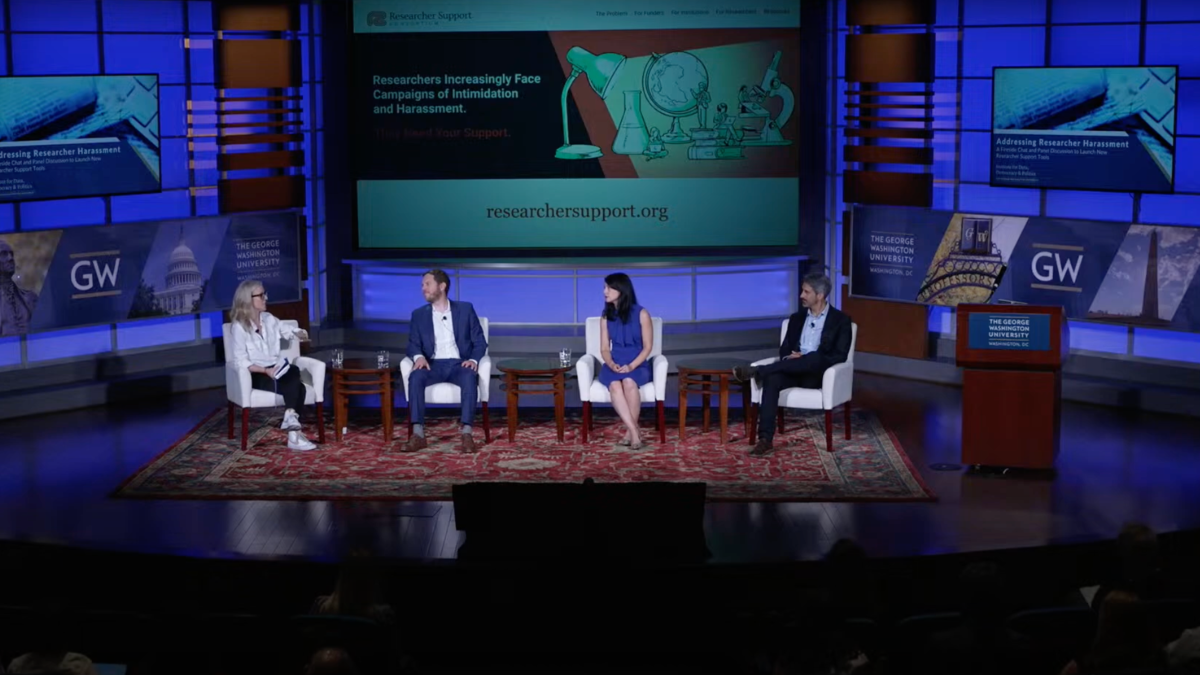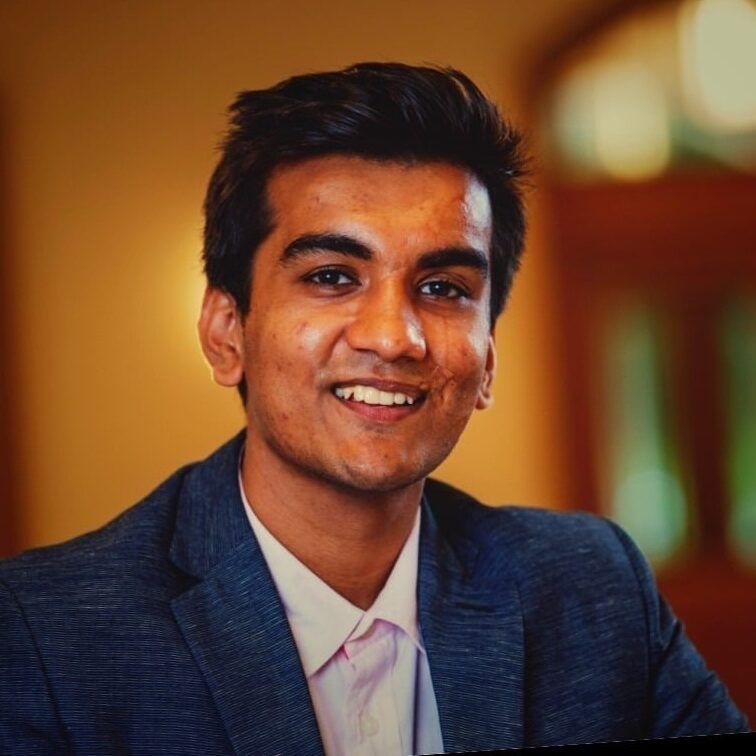Protecting Researchers from Harassment is Critical to Preserve Academic Freedom
Prithvi Iyer / Sep 26, 2024
September 20, 2024: A panel discussion at the launch event for the Researcher Support Consortium at The George Washington University in Washington, DC. Source
Researchers who study information integrity issues are targets of harassment and intimidation, including by US lawmakers and other partisans who would appear to prefer that phenomena such as hate speech, false claims about elections and public health issues, and other forms of mis- and disinformation escape scrutiny. Powerful figures such as Elon Musk and Rep. Jim Jordan (R-OH) have instigated various inquiries and legal challenges that threaten academic freedom to study issues at the intersection of technology and democracy. These attacks take place in the context of growing animosity towards science and other institutions that serve as epistemic backstops.
On September 20, The George Washington University’s Institute for Data, Democracy, and Politics hosted a convening in Washington, DC, to launch the Researcher Support Consortium, a new project to provide resources to funders, universities, and researchers to protect against harassment and promote free and open scientific discourse.
Tech Policy Press and its contributors have previously covered researcher harassment and its adverse effects on scientific inquiry and freedom of expression (including here, here, and here). While there is growing awareness about this issue, less effort has been made to chart solutions. This makes the launch of the Researcher Support Consortium especially pivotal. Importantly, this initiative recognizes that harassment and intimidation of researchers is a widespread issue affecting multiple disciplines, not limited to a single field. The consortium aims to raise awareness about the "playbook" of tactics used by attackers and the far-reaching impacts of these campaigns on individuals, institutions, and the broader scientific community.
During the launch event, panelists spoke about the financial and legal burden for researchers facing media attacks. For University of Washington researcher Dr. Kate Starbird, harassment from partisan media outlets led to a Congressional investigation. Dealing with such Congressional information requests and preparing for a hearing requires significant legal counsel and operational costs that further burden the researcher and their affiliated institution. Thus, researchers face both a legal and PR battle that is equally important to navigate.
Dr. Starbird noted that as a tenured professor, she had resources and job security that many less established researchers may not have. Thus, it is important to help researchers facing such attacks who may not have sufficient institutional support.
The launch event also featured a panel discussion moderated by Brandy Zadrozny, Senior Reporter at NBC News, and featuring Alex Abdo, Litigation Director at the Knight First Amendment Institute; Will Creeley, Legal Director, FIRE; and Dr. Mary Anne Franks, Professor in Intellectual Property, Technology, and Civil Rights Law, The George Washington University Law School. The panelists discussed the legal challenges faced by researchers targeted by online harassment, including the threats to privacy and the dwindling right to free expression for researchers working on politically sensitive topics. Dr. Franks spoke critically about how the First Amendment is often co-opted and weaponized by bad-faith actors who falsely claim that these researchers are censoring conservative voices. Alex Abdo pointed out there are no easy solutions to this. “What is kind of inescapable is the fact that our legal system is being abused in an effort to stifle constitutionally protected research,” he said, “and the unfortunate reality is that our legal system is not built in a way that makes it easy to provide an answer to these questions.”
There is still no federal legislation to protect researchers from such attacks, but other support systems can be leveraged. For instance, Will Creeley spoke about FIRE’s efforts to help public university researchers through its Legal Defense Fund, which provides 40 hours of legal counsel and litigation support. This is especially helpful in cases where researchers lack sufficient institutional support.
Panelists were also asked about how civil society researchers who don't have the same institutional support as university-affiliated academics can deal with such attacks. Abdo emphasized the need for researchers to get insurance to cover legal expenses and develop good relationships with journalists who can share their stories to make sure their voice is heard. “Get insurance if you can for the work that you do so that to the extent you are called into court, you can rely upon that insurance to defray the costs. And if you have sympathetic reporters, talk to them in advance and off the record,” said Abdo.
The speakers highlighted a pressing issue: this not only a struggle for researchers but a threat to academic integrity and freedom. If researchers are not protected from harassment and trolling, the community might be discouraged from continuing its work. It is also clear that there seems to be a “playbook” of intimidation tactics used against researchers that seem common across disciplines, and resources to combat these tactics are critical to protect academic discourse. As one of the Consortium’s leaders, Rebekah Tromble, an Associate Professor in the School of Media and Public Affairs and Director of the Institute for Data, Democracy, and Politics at GWU, put it, “It is imperative that our institutions become more familiar with what the playbook is and the larger impacts that it can have across disciplines, and so that's really what brings us to today, to the launch of the Researcher Support Consortium.”
This article has been corrected. A prior version misattributed a quote to Alex Abdo that was in fact from Will Creeley, and one from Creeley that was from Abdo. We regret the error.
Authors
